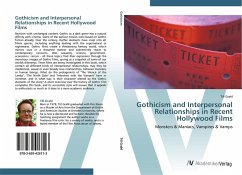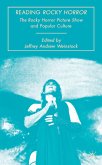Revision with unchanged content. Gothic as a dark genre has a natural affinity with cinema. Some of the earliest movies were based on Gothic fiction already. Over the century, Gothic elements have crept into all filmic genres, including anything dealing with the supernatural or nightmares. Gothic films create a threatening fantasy world, which mirrors ours in a distorted manner and subversively reacts to contemporary concerns. War, sexuality, science, government, economics, racism - all these topics find their expression through the monstrous images of Gothic films, giving us a snapshot of some of our worlds dilemmas. Three films are being investigated in this book, which contain all different kinds of interpersonal relationships, may they be intellectual, sexual or even bloody love relationships, between monsters or human beings. What do the protagonists of "The Silence of the Lambs", "The Ninth Gate" and "Interview with the Vampire" have in common, and in what way is their character altered by the Gothic elements of the story? A short overview over the history of Gothic film completes this book, and its accessible style will ensure that it appeals to enthusiasts as much as it does to a more academic audience.
Hinweis: Dieser Artikel kann nur an eine deutsche Lieferadresse ausgeliefert werden.
Hinweis: Dieser Artikel kann nur an eine deutsche Lieferadresse ausgeliefert werden.








